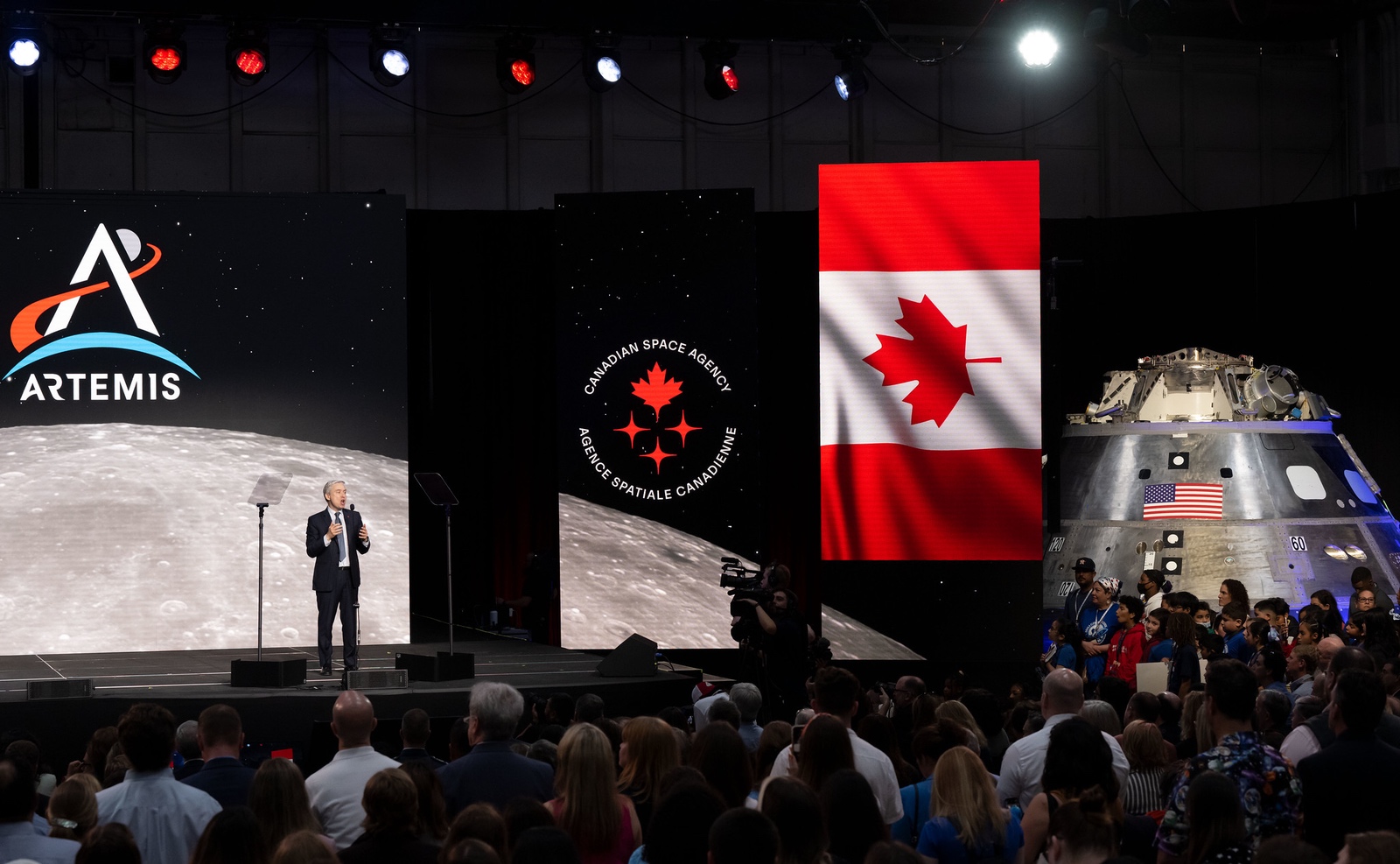
WASHINGTON — As Canada celebrates its first astronaut to go to the moon, it is starting a new project that could eventually enable a Canadian to walk on the lunar surface.
Canadian astronaut Jeremy Hansen is among the members of the Artemis 2 crew announced April 3. Hansen, who will be making his first spaceflight, is slated to be the first non-American to travel to the vicinity of the moon when the mission launches as soon as late 2024.
Canada secured the seat on Artemis 2, as well as a later, unspecified Artemis mission to the lunar Gateway, from NASA in 2020 in exchange for providing the Canadarm3 robotic arm system for the Gateway. “It is not lost on any of us that the United States could choose to go back to the moon by themselves,” Hansen said in remarks at the ceremony where he and the other Artemis 2 astronauts were announced. “All of Canada is grateful for that global mindset and that leadership.”
He also credited Canada’s “can-do attitude” for the opportunity to fly on Artemis. “Thousands of Canadians have risen to that challenge to bring real value to that international partnership.”
François-Philippe Champagne, Canada’s minister for innovation, science and industry, also emphasized that partnership at the event. ‘This is more than just about going back to the moon,” he said. “This is about investing in the future.”
“What’s most amazing for us is that Canada has a seat at the table,” he said in a later call with reporters. “This time we’re not going to watch history, we’re going to write history.”
Canada may be looking to get a bigger seat at that table. In the Canadian federal budget released March 28, the government announced its intent to spend $1.2 billion Canadian ($900 million) over 13 years, starting in 2024, to develop a “lunar utility vehicle” to support human exploration of the moon.
“Looking forward, humanity is returning to the moon,” the government stated in its budget announcement. “Canada intends to join these efforts by contributing a robotic lunar utility vehicle to perform key activities in support of human lunar exploration.”
The government, including the Canadian Space Agency, has disclosed few other details about the proposed vehicle. The announcement, though, has been welcomed by Canadian industry.
“The $1.2 billion investment towards a Canadian lunar utility vehicle sends a loud and important signal to the global commercial and government space community that Canada is open for business and intends to aggressively compete to secure our share of this advanced tech innovation market and the high-quality jobs it will create,” Mike Greenley, chief executive of MDA, said in a statement after the release of the budget.
Some have speculated that, by developing such a vehicle, Canada could offer it to NASA in exchange for additional seats on Artemis missions, including those landing on the moon. The European Space Agency, for example, recently backed development of a cargo lunar lander called Argonaut with the expectation that it will be able to offer it to NASA in exchange for additional seats on Artemis missions.
Asked about that possibility in the call, Champagne did not directly address it, but emphasized the strategic nature of Canada’s cooperation with the United States on Artemis. “We’re going to design, build and operate these rovers on the moon, and I can think of a number of dividends for Canadian companies” for doing so, he said.
“I think we have a privileged seat at the table with NASA,” he said. “Thanks to the work of the agency, we have inserted ourselves into the strategic supply chain and I think it bodes well for the future.”
Related
https://news.google.com/rss/articles/CBMiUWh0dHBzOi8vc3BhY2VuZXdzLmNvbS9jYW5hZGEtcHJvcG9zZXMtdG8tZGV2ZWxvcC1yb2JvdGljLWx1bmFyLXJvdmVyLWZvci1hcnRlbWlzL9IBAA?oc=5
2023-04-10 12:01:04Z
1845503669
Tidak ada komentar:
Posting Komentar